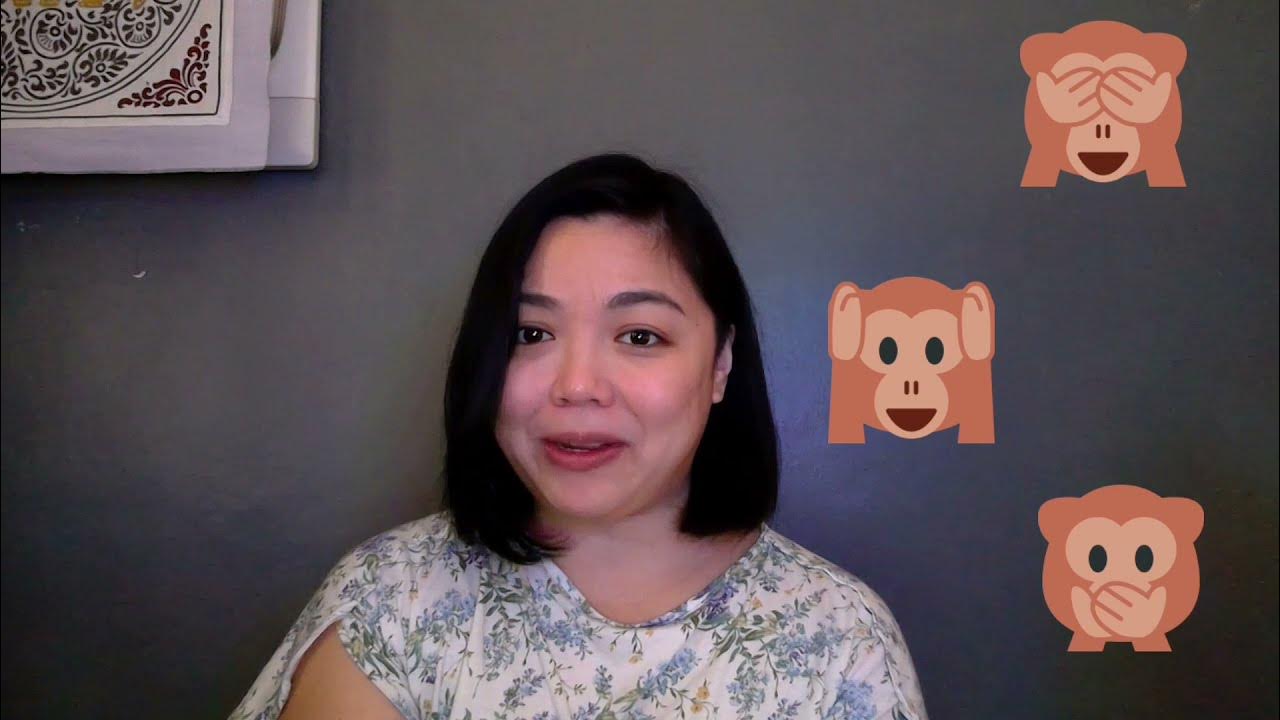He Ghosted You? Here’s the Only Response That Wins
Summary
TLDRThis video addresses the emotional turmoil caused by ghosting, explaining how it can trigger feelings of self-doubt, anxiety, and anger. It uncouples ghosting from rejection, emphasizing that it's a behavioral pattern driven by a lack of empathy or standards in communication. The speaker encourages viewers to avoid internalizing ghosting as a reflection of their worth and to instead focus on people who value their time and energy. Additionally, the video introduces a free 30-day confidence challenge to help rebuild self-esteem after such experiences.
Takeaways
- 😀 Ghosting is not a personal rejection; it's a behavioral pattern that reflects how someone handles difficult situations and communication.
- 😀 When ghosted, it's common to feel hurt, anxious, and self-doubting, but it's important to separate your worth from the ghoster's actions.
- 😀 Ghosting can feel like the ultimate rejection, but it's crucial to realize that it's a reflection of the ghoster's lack of empathy and communication skills, not your value.
- 😀 We often think ghosting means we did something wrong, but it typically reflects the ghoster's inability to engage or face discomfort in communication.
- 😀 In early dating, ghosting should be seen as a signal to redirect your energy towards people who value you and your time.
- 😀 The impact of ghosting is even more profound when it happens in long-term relationships, leaving us questioning our judgment and what went wrong.
- 😀 Some people only show love when their needs are being met. Once those needs change or are unmet, they may abandon you without explanation.
- 😀 The grieving process after ghosting is not about the person but the idea of the relationship you thought you had and the future you envisioned.
- 😀 Ghosting may lead to distrust in people, but it's essential to recognize that not everyone will treat you the same way, and there are still good people out there.
- 😀 To rebuild confidence after ghosting, focus on understanding the complexity of relationships, and give yourself permission to experience both the good and the bad.
- 😀 We all make mistakes in relationships. Understanding the nuances of human behavior allows us to grow and form healthier connections in the future.
Q & A
What does ghosting mean in the context of relationships?
-Ghosting refers to someone abruptly cutting off communication without any explanation or closure. It often happens in dating or personal relationships, where one person stops responding or engaging with the other, leaving them in confusion and emotional distress.
How does the emotional journey of being ghosted typically unfold?
-The emotional process of being ghosted starts with anxiety, questioning what went wrong. This then shifts into hurt and disappointment, followed by disbelief and confusion. People often interrogate themselves, wondering if they misunderstood the situation or made a mistake. For those with self-doubt, it can lead to questioning their worth. Eventually, anger arises due to the lack of closure.
Why is ghosting not necessarily a personal rejection?
-Ghosting is a behavioral pattern specific to the person who ghosts, often due to their inability to handle difficult emotions or conversations. It doesn’t reflect your worth or indicate that you are inherently unworthy. Instead, it's a reflection of how that person deals with situations.
What’s the difference between a rejection and ghosting?
-Rejection typically involves clear communication, such as telling someone directly that you're no longer interested. Ghosting, on the other hand, involves disappearing without explanation. While rejection is about expressing disinterest, ghosting is a behavior pattern that avoids confrontation and fails to offer closure.
How does modern technology influence ghosting behavior?
-Technology, especially dating apps and social media platforms, has made it easier to ignore people. With the ability to talk to multiple people at once and the increased anonymity these platforms provide, people can more easily avoid communication without feeling the same sense of responsibility they might have in person or through traditional means like phone calls.
Is ghosting always malicious?
-No, ghosting is not always done out of malice. Sometimes, it results from misaligned motivations, lack of empathy, or difficulty dealing with discomfort. While ghosting is hurtful, it doesn't necessarily mean the person intended to harm you; it may just indicate they are unwilling to engage in difficult conversations or maintain a relationship.
What should someone do if they’re ghosted early in a relationship?
-If someone ghosts you early in a relationship, it’s important to view it as a signal to move on and not invest further emotional energy into that person. There’s no need to chase after someone who isn’t engaging with you, as this behavior often indicates a lack of shared values and motivations.
What is the impact of long-term relationships where ghosting occurs?
-In long-term relationships, ghosting is extremely traumatic and disorienting. It can lead to feelings of self-doubt, questioning one’s judgment, and a deep sense of betrayal. This type of ghosting is more complicated as it undermines the trust built over time and leaves the person feeling blindsided and emotionally confused.
How do people who ghost show their true colors in relationships?
-People who ghost after a long-term relationship often reveal that they were not genuinely committed to the other person’s well-being. Their love may have been more about fulfilling their own needs, and when those needs changed or were no longer met, they abandoned the relationship without closure or explanation.
How can someone rebuild their confidence after being ghosted?
-Rebuilding confidence after being ghosted involves understanding that the ghosting reflects the other person's behavior, not your worth. Engaging in self-care, reflecting on the experience, and learning from the situation can help. Participating in events like the 30-day confidence challenge can provide structured support to boost confidence and help you focus on self-improvement.
Outlines

Cette section est réservée aux utilisateurs payants. Améliorez votre compte pour accéder à cette section.
Améliorer maintenantMindmap

Cette section est réservée aux utilisateurs payants. Améliorez votre compte pour accéder à cette section.
Améliorer maintenantKeywords

Cette section est réservée aux utilisateurs payants. Améliorez votre compte pour accéder à cette section.
Améliorer maintenantHighlights

Cette section est réservée aux utilisateurs payants. Améliorez votre compte pour accéder à cette section.
Améliorer maintenantTranscripts

Cette section est réservée aux utilisateurs payants. Améliorez votre compte pour accéder à cette section.
Améliorer maintenantVoir Plus de Vidéos Connexes

If your Ex was Narcissistic, you need to hear THIS

On Fear by Rina Rising

Menghadapi Perasaan Negatif Dalam Diri (Belajar Psikologi: Seri Emosi)

A origem da ansiedade e um exercício para reduzi-la | Italo Marsili

Covert Narcissists live a Painful life on Earth! |NPD| #narcissism #vulnerablenarcissism

BEING UGLY
5.0 / 5 (0 votes)
